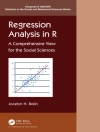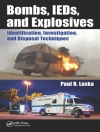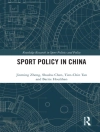Social research is a bourgeoning field. Of course it has many traditions and approaches, but there is a high premium upon thinking differently and thinking anew because social life is never static or wholly predictable.
The Handbook, edited by internationally recognized scholars, provides a comprehensive, pitch-perfect critical assessment of the field. The main features of the Handbook are:
- Clear organization into 4 parts dealing with The Social Context of Research; Design and Data Collection; Integrating The Analysis of New Data Types; Sampling, Inference and Measurement
- Clear, cutting edge chapters on Objectivity; Causation; Organizing Social Research; Correspondence Analysis; Grounded Theory; Conversational Surveys; Mixed Methods; Meta-Analysis; Optimal Matching Analysis; GIS Analysis; Quantitative Narrative Analysis; Longitudinal Studies; SEM; MLM; Qualitative Comparative Analysis; Respondent Driven Sampling
- Brings together a glittering assembly of the key figures working in the field of research methods
- Demonstrates the continuities and productive tensions between classical traditions and real world research.
The result is a superbly organized text which will be required reading for anyone interested in the routes and future of social research. It is an unparalleled teaching resource and a ′must have′ for serious social researchers.
Tabella dei contenuti
PART ONE: THE SOCIAL CONTEXT OF RESEARCH
Introduction – Malcolm Williams and W Paul Vogt
Objectivity: A Reconceptualization – Martyn Hammersley
Setting Up Sociological Research – Geoff Payne
Feminist Methodology – Gayle Letherby
What Is an Effect? Coming at Causality Backwards – David Byrne
PART TWO: DESIGN AND DATA COLLECTION
Introduction – Malcolm Williams and W Paul Vogt
Narratives of the Future: Complexity, Time and Temporality – Emma Uprichard
Mapping Pathways – Wendy Dyer
Correspondence Analysis: A Case for Methodological Pluralism? – Ian Rees-Jones
Case-Oriented Theory-Building and Theory-Testing – Charles C Ragin and Garrett Andrew Schneider
Investigating Human Communication and Language from Traces Left on the Web – Mike Thelwall
Innovative Qualitative Data-Collection Techniques for Conducting Literature Reviews/Research Syntheses – Anthony J Onwuegbuzie, Nancy L Leech and Kathleen M T Collins
Grounded Theory – Antony Bryant and Kathy Charmaz
Back to Likert: Towards the Conversational Survey – Giampietro Gobo
Mixed Methods for Construct Validation – John H Hitchcock and Bonnie K Nastasi
Researching with Peer/Community Researchers: Ambivalences and Tensions – Rosalind Edwards and Claire Alexander
Innovations in Program Evaluation: Comparative Case Studies as an Alternative to RCTs – W Paul Vogt et al
PART THREE: INTEGRATING THE ANALYSIS OF NEW DATA TYPES
Introduction – W. Paul Vogt and Malcolm Williams
Advances in Combining Regression Results in Meta-Analysis – Ariel M Aloe and Betsy Jane Becker
Toward a New Era for Conducting Mixed Analyses: The Role of Quantitative Dominant and Qualitative Dominant Cross-Over Mixed Analyses – Anthony J Onwuegbuzie, Nancy L Leech and Kathleen M T Collins
Optimal Matching Analysis – Peter Martin and Richard D Wiggins
Quantitative Narrative Analysis – Roberto Franzosi
Lexicographic Index: A New Measurement of Resemblance among Sequences – Ivano Bison
Geographic Information Systems (GIS) and Spatial Analysis – Elizabeth Griffiths
PART FOUR: SAMPLING, INFERENCE AND MEASUREMENT
Introduction – W Paul Vogt and Malcolm Williams
Respondent-Driven Sampling: Operational Procedures, Evolution of Estimators and Topics for Future Research – Cyprian Wejnert and Douglas Heckathorn
Analyzing Longitudinal Studies with Non-Response: Issues and Statistical Methods – James Carpenter and Ian Plewis
Statistical Inference for Causal Effects, with Emphasis on Applications in Psychometrics and Education – Donald B Rubin
Automatic Item Generation: An Innovation for Developing Complex Cognitive Tests – Susan E Embretson and Heather H. Mc Intyre
Convergence of Structural Equation Modeling and Multilevel Modeling – Rex B Kline
Hierarchical Linear and Structural Equation Modeling Approaches to Mediation Analysis in Randomized Field Experiments – Keenan Pituch and Laura Stapleton
Circa l’autore
W. Paul Vogt is Emeritus Professor of Research Methods and Evaluation at Illinois State University where he won both teaching and research awards. He specializes in methodological choice and program evaluation and is particularly interested in ways to integrate multiple methods. His other books include: Tolerance & Education: Learning to Live with Diversity and Difference (Sage Publications, 1998); Quantitative Research Methods for Professionals (Allyn & Bacon, 2007); Education Programs for Improving Intergroup Relations (coedited with Walter Stephan, Teachers College Press, 2004). He is also editor of four 4-volume sets in the series, Sage Benchmarks in Social Research Methods: Selecting Research Methods (2008); Data Collection (2010); Quantitative Research Methods (2011); and, with Burke Johnson, Correlation and Regression Analysis (2012).His most recent publications include the coauthored When to Use What Research Design (2012) and Selecting the Right Analyses for Your Data: Quantitative, Qualitative, and Mixed Methods Approaches (2014).












